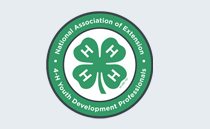Abstract
4-H LIFE represents a promising approach to addressing the needs of children of offenders and their caregivers. The 4-H Living Interactive Family Education (LIFE) Program was established in 1999 at the Potosi Correctional Center, a maximum security prison. 4-H LIFE is an enhanced or therapeutic visitation program with three key components: 1. parent engagement 2. parent education 3. 4-H activities for children of offenders, led by the incarcerated parents. Since inception, 141 youths between the ages of 5 and 18 have participated; 59 incarcerated fathers and 106 caregivers have also been engaged at PCC. Program evaluations suggest that parent-child outcomes improved. In 2005, 4-H LIFE received the Annie E. Casey Foundation Family Strengthening Awa
Recommended Citation
Lawson, Lynna J.; Wilkerson, Robert C.; Gillespie, Tammy; and Dunn, Elizabeth G.
(2007)
"Addressing the Needs of Children of Offenders:The 4-H LIFE Model,"
Journal of Youth Development: Vol. 2:
Iss.
2, Article 3.
Available at:
https://open.clemson.edu/jyd/vol2/iss2/3
Included in
Child Psychology Commons, Civic and Community Engagement Commons, Community-Based Learning Commons, Developmental Psychology Commons, Leadership Studies Commons



